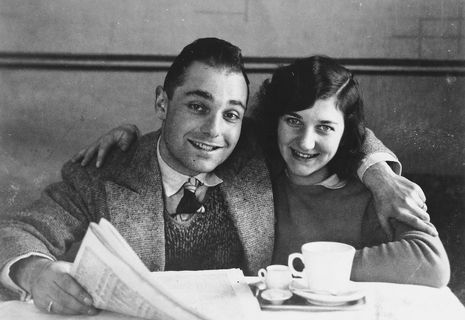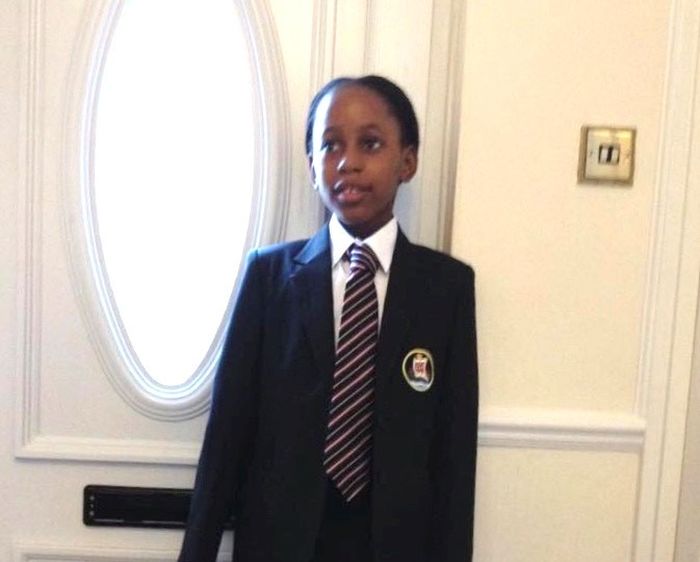The Holocaust is screaming to be heard. It’s time we listened.
Riannon Chaplin reflects on her own experiences of Holocaust education, arguing that initiatives like Holocaust Memorial Day will never be fully effective without deeper governmental and corporate engagement

Ota and Katerina Margolius gaze at me, grinning, eyes sparkling over a newspaper and a morning cup of coffee at home in Prague. His arm is around her shoulder; her smile is full of joy. It’s only a photograph, and yet it’s so much more than that – it’s a bridge from them to me, from past to present, human to human. From a beautiful, newly-engaged couple to a student struggling to understand their fate.
It may seem odd to suggest that we have ignored the Holocaust. After all, isn’t it everywhere – in our films, our novels, our classrooms? Haven’t we seen the pictures in textbooks, heard the testimonies in old documentaries? Will we not pay it due attention again this year on 27th January, Holocaust Memorial Day?
But there is a sharp distinction to be made between engaging with the past and merely evoking it at times convenient to us. For all of our literature, our lessons, and our vows to remember – to never let it happen again – the most recent figures show that 5% of UK adults do not believe the Holocaust happened, and 45% are unsure how many people were killed.
“Never again,” we will say this Holocaust Memorial Day. And yet it has happened again – in Cambodia, Bosnia, Rwanda. And it is happening today: in East Turkistan, the Uyghur Muslims are the victims of genocide, forced into so-called ‘re-education camps’ where atrocities such as rape, forced labour and forced sterilisation are part of everyday life.
The pandemic means that Holocaust Memorial Day 2021, organised by the Holocaust Memorial Day Trust (HMDT), will take a very different form from what which we are used to. But this year’s theme – ‘be the light in the darkness’ – is nevertheless poignant, after a year obscured by more darkness than any of us imagined but still illuminated by beams of human kindness. Yet with such alarming levels of misinformation about – and outright denial of – the Holocaust, it is time we questioned whether occasions like this can ever be truly effective when we lack serious engagement with the topic in our everyday lives.
“The Holocaust I knew was a cursory glance backwards, with assurances that things like this simply didn’t happen anymore.”
I first saw this picture of Ota and Katerina in 2019, in a seminar in London a few days before visiting Auschwitz. The ‘Lessons from Auschwitz’ programme, run annually by the Holocaust Educational Trust (HET), opened my eyes to the complexity and importance of studying genocides – and studying them properly. History students are wont to wax lyrical about the importance of the past to the present, but the urgency of bringing Holocaust education into the mainstream could not be clearer.
The work of charities like HET and HMDT is a vital aspect of this, shedding light on individual stories and combatting dangerous stereotypes about minorities and the processes that lead to persecution. But we should not have to rely solely upon these incredible organisations for this. We must go further, and we must act now.
At the core of this, I believe, are schools and social media platforms. As a Key Stage 3 pupil, I received what is a common education on the Holocaust in state schools across the country: a handful of lessons, perhaps not even as many as that; graphic photographs of emaciated strangers, with no attempt made to humanise them; and the constant recitation of statistics, of the number six million, without fully comprehending what that meant, or what it could mean in the future. The Holocaust I knew was a cursory glance backwards, with assurances that things like this simply didn’t happen anymore. Still, it was important to learn about them, though no one seemed to know why.
The national curriculum for History means that, by law, children are required to learn about the Holocaust. Yet there still exists a shocking level of ignorance on the issue, necessitating projects like ‘Lessons from Auschwitz’ which aim to provide a new and vital approach to Holocaust education, led by individual testimony and personal experience.
This approach should be taken as standard across all schools. Perhaps, armed with a universal basic understanding of the events before and during the Holocaust, and equipped with the names and stories of victims and survivors alike, we would no longer treat genocide as an empty vessel for common misunderstandings.
“When we open the doors to Holocaust denial, we usher through all forms of bigotry, racism and historical distortion.”
Of course, a renewed focus on the Holocaust in schools is not a cure-all for the disease of denial, and social media can act as a vector. Facebook may have recently banned posts that deny or distort the Holocaust, but much damage has already been done; one never had to search for long to find groups dedicated to spreading denial and other anti-Semitic beliefs. That a months-long campaign by survivors was even necessary to achieve this ban surely demonstrates the apathy that the normalisation of Holocaust denial has caused.
While we are making progress – Twitter announced two days after Facebook that it, too, would explicitly ban Holocaust denial – these measures came as a response to rising anti-Semitism, rather than as a preventative measure. Make no mistake: when we open the doors to Holocaust denial, we usher through all forms of bigotry, racism and historical distortion.
A combination of dedicated teaching – informed by the work of charities and a focus on the human aspect of history – and the proactive engagement of technology companies would go a long way to establishing critical engagement with the Holocaust, and the past more generally, in our everyday lives, with all the benefits for a politically conscious society this would entail. It would help to smother denial and distortion.
The work of the many charities and institutions across the world who strive to open our eyes to the complexity and importance of studying genocides past and present is invaluable. Our governments and corporations must join them.
I am reminded of this every time I see Ota and Katerina’s picture. I am reminded of their hope, their joy, and their love, captured forever on a typical morning circa 1930. And I am reminded that, on their 14th wedding anniversary, they were deported to Auschwitz. I am reminded that Ota never returned.
We cannot allow their names and stories – and those of millions of others – to be forgotten, glossed over in our fleeting glimpse of Holocaust education and treated as a tick-box exercise on our national curriculum. If we act now, they won’t be.
 News / Caius mourns its tree-mendous loss23 December 2025
News / Caius mourns its tree-mendous loss23 December 2025 Comment / Yes, I’m brown – but I have more important things to say22 December 2025
Comment / Yes, I’m brown – but I have more important things to say22 December 2025 News / Cambridge welcomes UK rejoining the Erasmus scheme20 December 2025
News / Cambridge welcomes UK rejoining the Erasmus scheme20 December 2025 News / CUP announces funding scheme for under-represented academics19 December 2025
News / CUP announces funding scheme for under-represented academics19 December 2025 Interviews / Politics, your own way: Tilly Middlehurst on speaking out21 December 2025
Interviews / Politics, your own way: Tilly Middlehurst on speaking out21 December 2025









